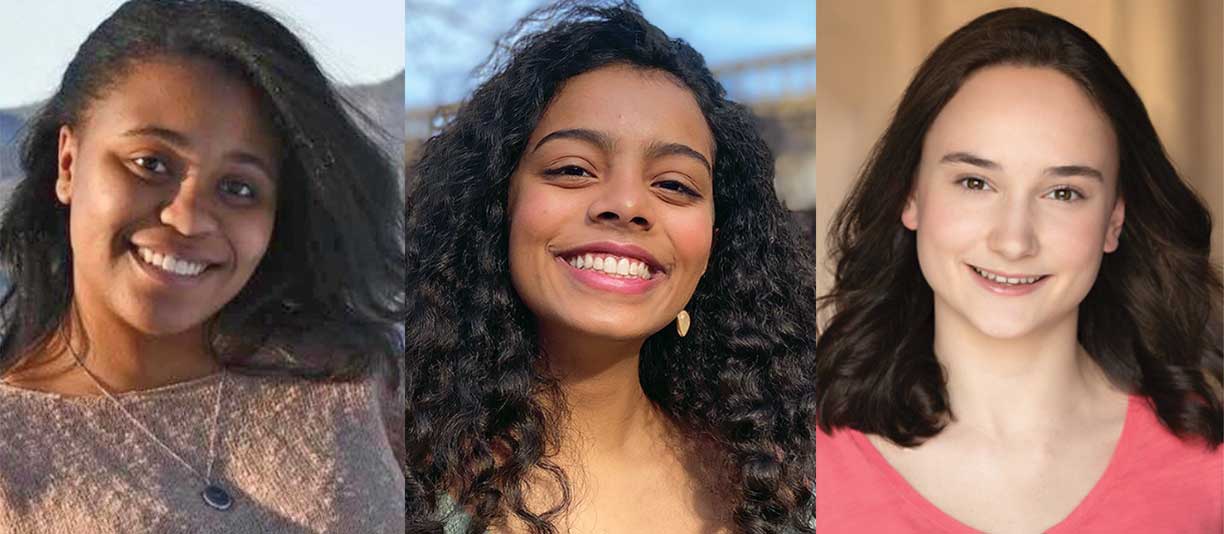Women Leading Triangle Club Seek to Build Diversity
‘You have to care about the people that are putting together the show’
In the fall of 2018, Regan McCall ’22 auditioned for the Triangle Club and didn’t get a callback. She tried again that spring, landing a role in the spring 2019 show, and two years later, McCall was elected president of the 130-year-old performing-arts group as the first Black woman to lead the club.
Now McCall and the two new vice presidents, Brenda Theresa (BT) Hayes ’22 and Kate Semmens ’22, envision making Triangle a more inclusive space for students from different performing and cultural backgrounds.
“It’s my goal as president to make sure that not only is Triangle a good, safe place where people can enjoy being themselves, but where people want to stay for all four years,” said McCall. “Some people see joining Triangle as a stepping stone into the professional field, which is positive ... but at the end of the day, we are students in a student organization and treating it like an exclusive workspace can cause tension in this space for students who just want to have fun.”
According to McCall, this tension can be especially strong for students without previous theater experience, many of whom are students of color or international students. Among those who join the club, “not many students of color stay for all four years, or at least nearly as long as some of our white cast members,” said McCall.
McCall formerly served as Triangle’s Equity, Diversity, and Inclusion Task Force (EDIT) chair. McCall, Hayes, and Semmens are working to put EDIT at the forefront of the organization’s work, especially in the casting process and in communications with the trustee board. They plan to expand training workshops leading up to auditions and applications and to make it easier for members to explore different teams — such as writing or tech. These changes, they hope, can make the club experience more inviting and accessible.
In recent years, one key part of Triangle has become accessible to more students: the formerly all-male kickline. In the 2018 show, the kickline was all-female, and the last two have been co-ed. Semmens said this has given all members “the chance to be part of the kickline tradition.”
Hayes, a member of the writing team, said that “process is a product” for a club like Triangle. “So if people aren’t enjoying the process of creating theater, that’s a huge issue,” she said. “You have to care about the people that are putting together the show.”
McCall added that “it never really crossed my mind that I was going to be trailblazing in any way. … BT, Kate, and I, we are all women, and we are majority women of color. But honestly, we’re all officers because we just want to do the work to make this a space for everyone.”












No responses yet